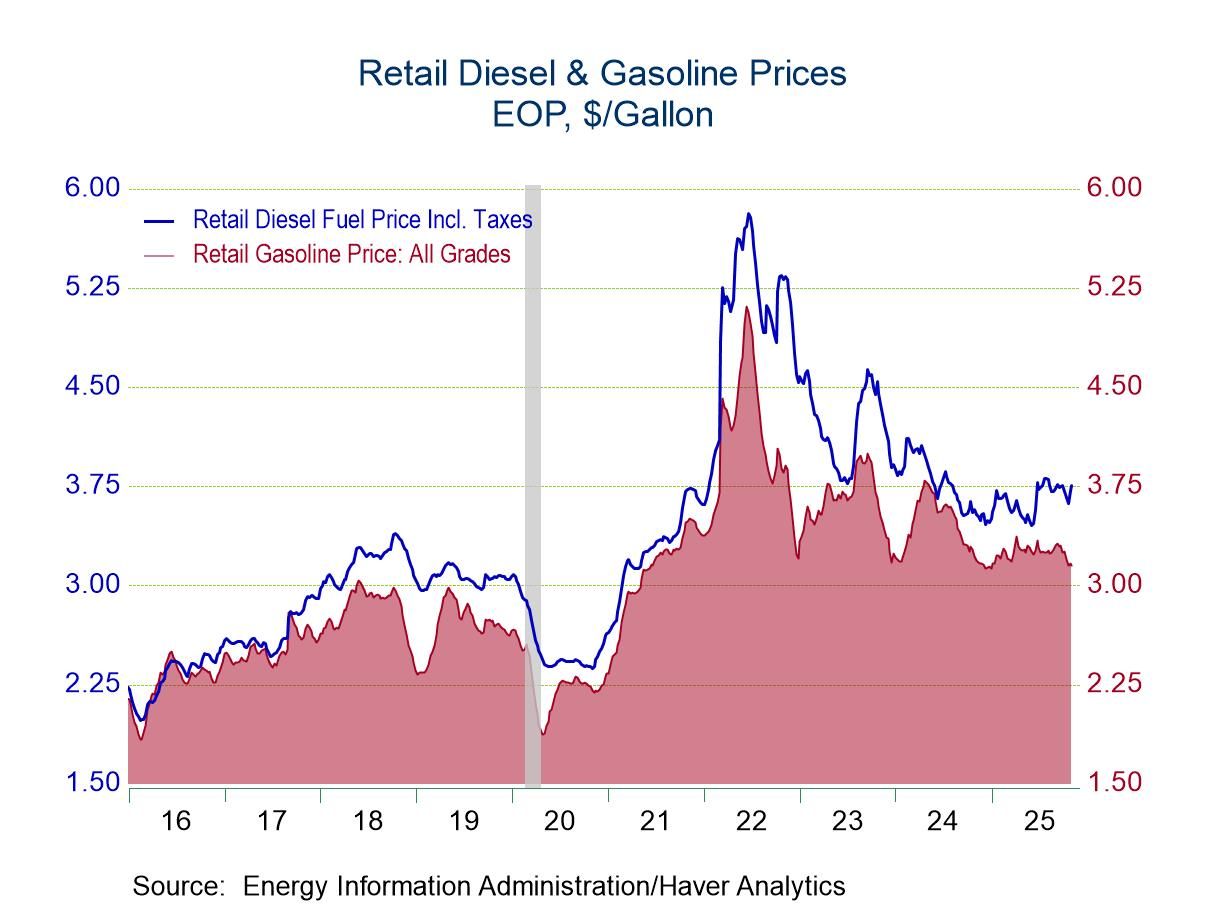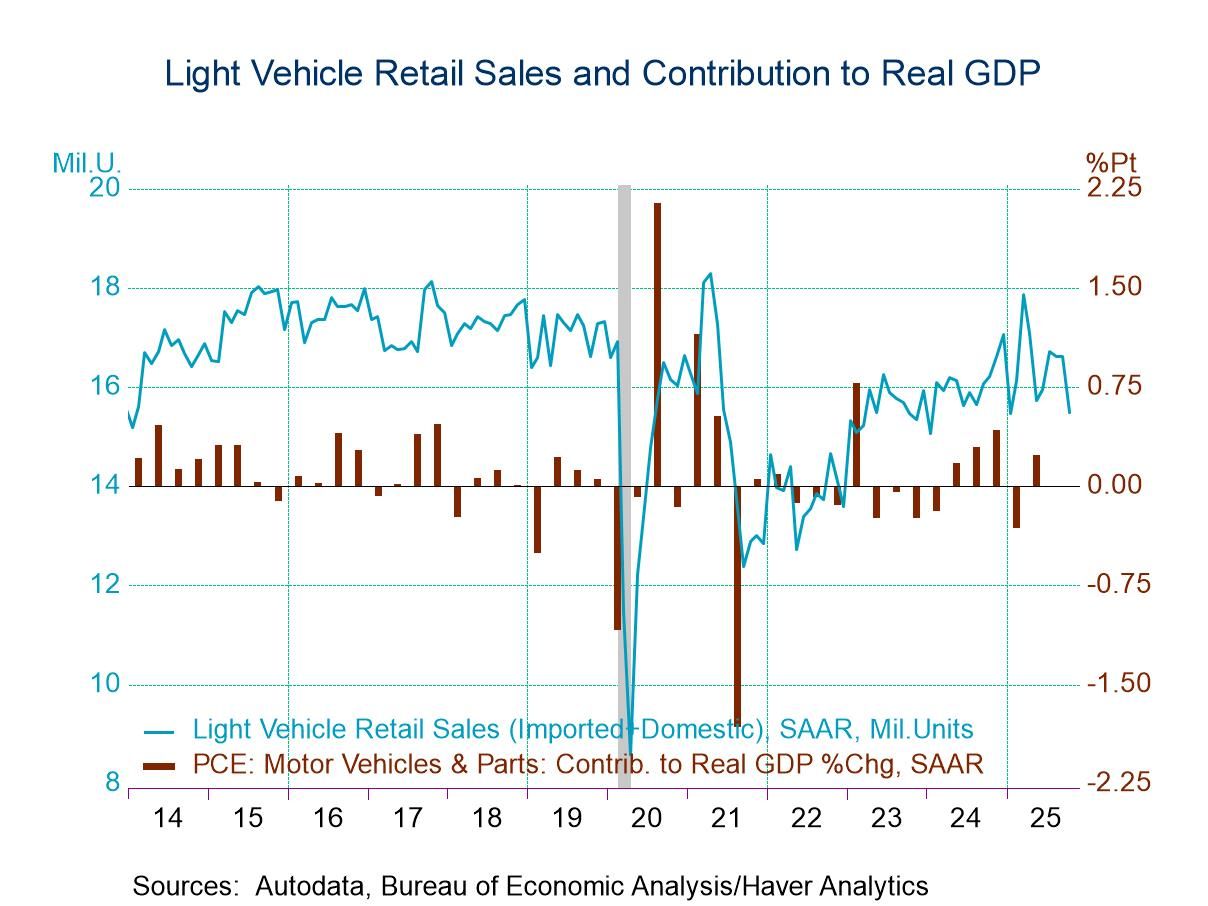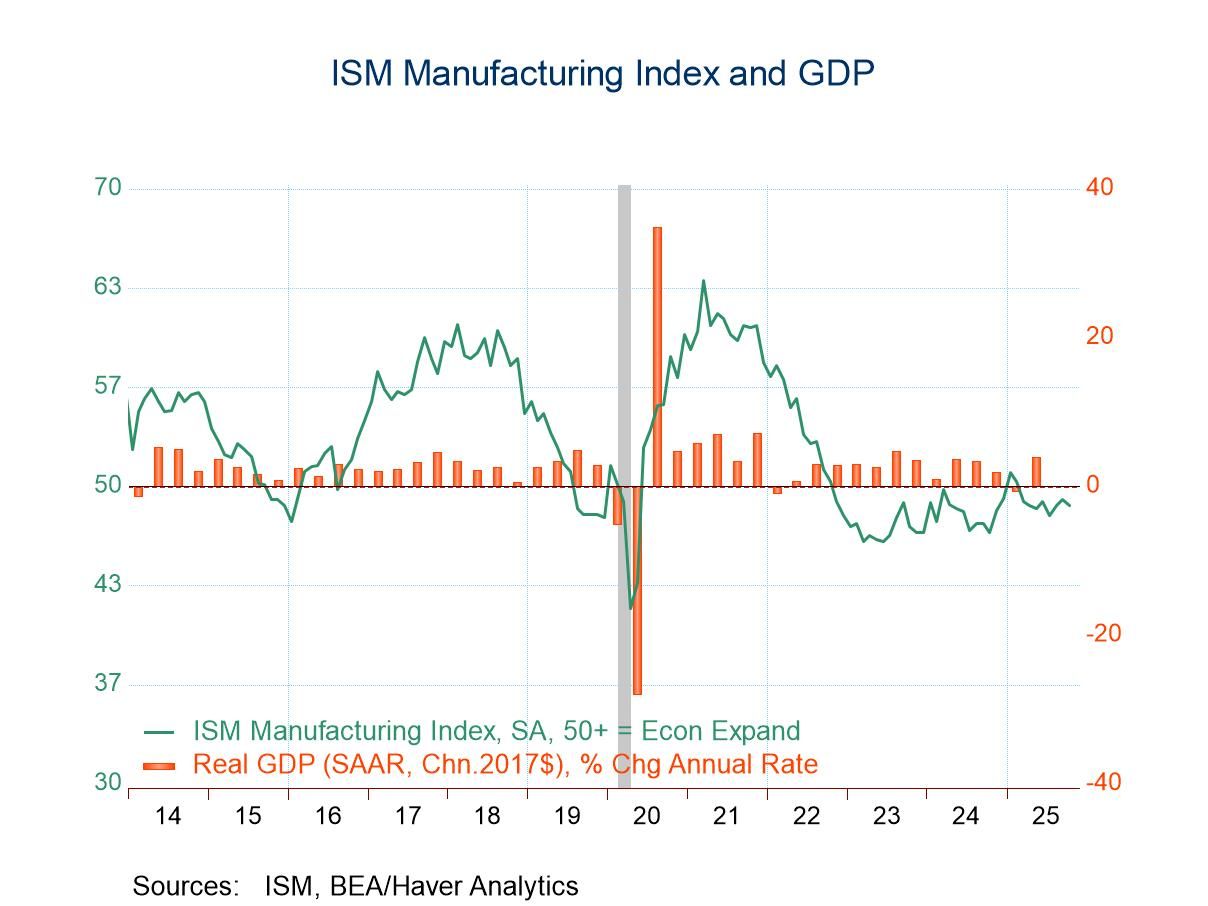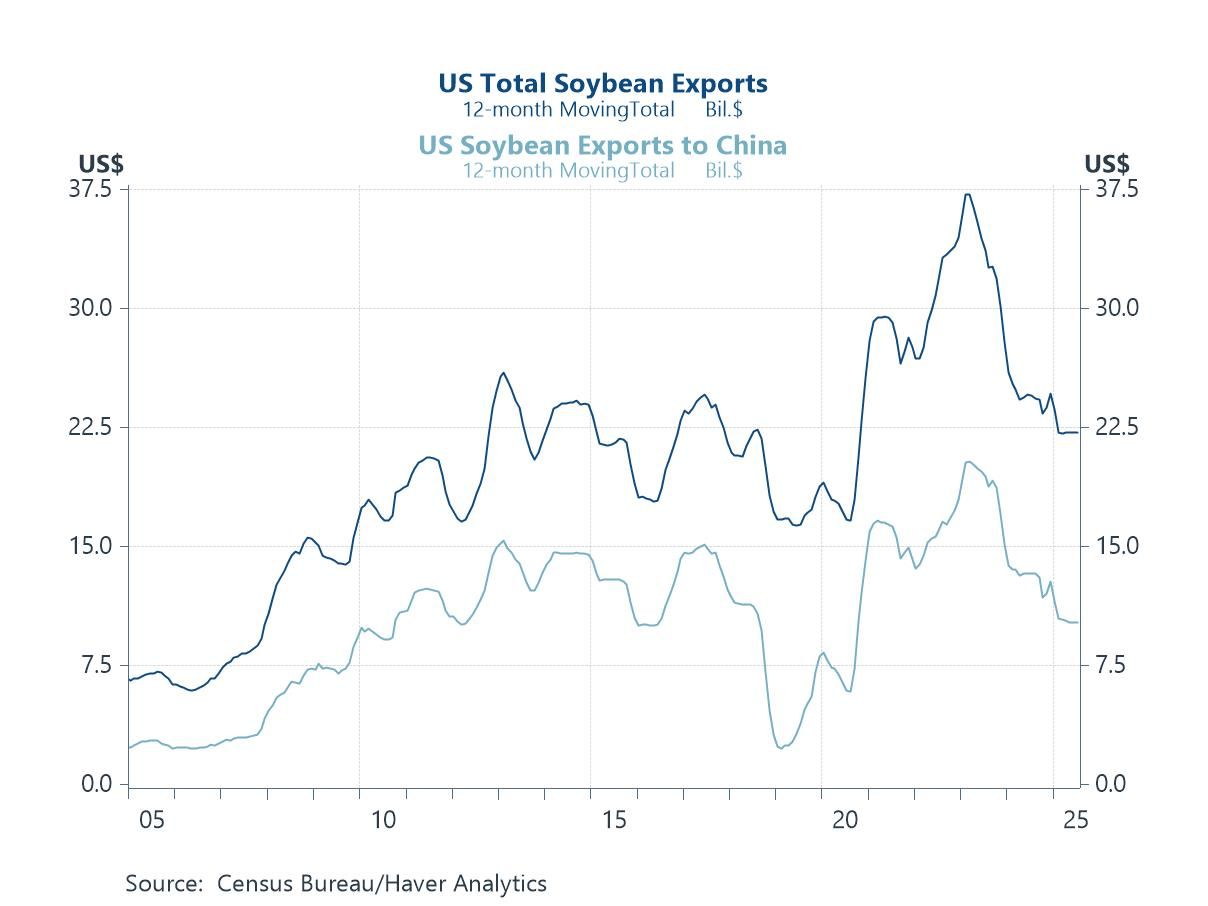 Global| Jul 11 2008
Global| Jul 11 2008U.S. May Trade Deficit Narrowed Unexpectedly
by:Tom Moeller
|in:Economy in Brief
Summary
The U.S. foreign trade deficit unexpectedly narrowed in May to $59.8B from a little-revised $60.5B in April. A May deficit of $62.4B had been generally expected. So far this year the monthly deficit has averaged $59.0B versus $59.8B [...]
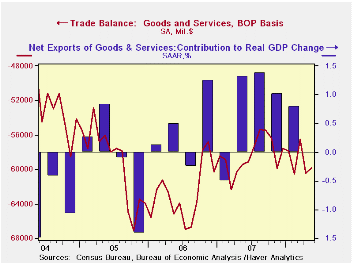
The U.S. foreign trade deficit unexpectedly narrowed in May to $59.8B from a little-revised $60.5B in April. A May deficit of $62.4B had been generally expected. So far this year the monthly deficit has averaged $59.0B versus $59.8B during the first five months of 2007.
In constant dollars the picture is even more encouraging as the deficit narrowed to $43.6B from $46.6B in April. So far this year the real deficit has narrowed by $10B to an average $47.8B. For the second quarter so far it appears the narrower deficit will add up to two percentage points to real GDP growth after additions between 0.8 and 1.4 percentage points during the last three quarters.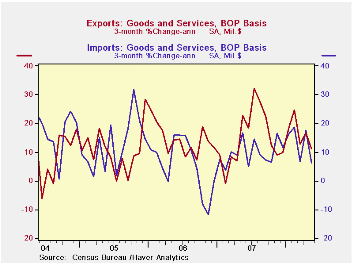
U.S. exports rose 0.9% following the 3.7% pop in April that was revised up slightly. Annualized, exports have risen at an 11.4% rate during the last three months versus 13.0% growth during 2006 and 2007.
Goods exports rose 0.5% May after an upwardly revised 5.0% pop in April. In chained dollars they rose 0.7% (10.3% y/y). Real exports of nonauto consumer goods dipped 0.1% (+10.4% y/y) after their 6.2% pop during April. Exports of capital goods also gave back some of their strong April gain and fell 1.7% (+6.8% y/y). Exports of industrial supplies & materials jumped 4.8% during May (16.0% y/y).
Exports of services rose 1.3% (16.0% y/y), about the same as they did during April. Travel exports surged 2.3% (20.0% y/y) and passenger fares rose 0.8% (25.9% y/y).
Reduced demand for oil dropped May petroleum imports by 1.7%. Adjusted for the higher prices, petroleum imports slouched by 10.5% (-13.5% y/y). The average cost for a barrel of crude oil was $106.28 in May.
Month-to-month, imports of nonpetroleum products rose 1.3% but measured in chained 2000 dollars these imports rose just 0.8% (0.8% y/y) following a 2.5% surge in April. In chained dollars imports of capital goods surged again by 1.6% (6.3% y/y). Chained imports of nonauto consumer goods also were quite firm and jumped 3.6% (2.2% y/y). That strength was countered by a 3.9% (-3.1% y/y) drop in real imports of automotive vehicles & parts.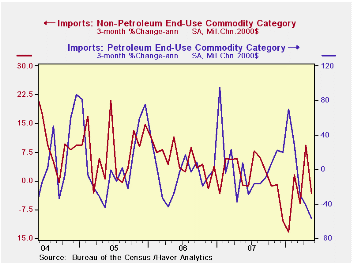
Services imports jumped 1.1% (8.9% y/y). Travel imports increased reversed an April decline and rose 1.4% (8.2% y/y) while passenger fares increased 1.3% (16.5% y/y).
With China, the U.S. trade deficit in goods added to the sharp April deterioration and fell to $21.0B. That was the deepest deficit since last November. The deficit with China during the first five months of this year is about the same as during last year's first five months. Exports to China rose 26.3% y/y and imports rose a moderate 9.4%.
Globalization and Inflation Dynamics: The Impact of Increased Competition from the Federal Reserve Bank of New York is available here
Building a Better World: Infrastructure's Role in Economic Growth from the Federal Reserve Bank of Atlanta can be found here
| Foreign Trade | May | April | Y/Y | 2007 | 2006 | 2005 |
|---|---|---|---|---|---|---|
| U.S. Trade Deficit | $59.8B | $60.5B | $59.4B (5/07) | $700.3 | $753.3 | $711.6B |
| Exports - Goods & Services | 0.9% | 3.7% | 17.8% | 13.0% | 13.5% | 10.6% |
| Imports - Goods & Services | 0.3% | 4.6% | 12.5% | 6.1% | 10.8% | 12.8% |
| Petroleum | -1.7% | 12.9% | 47.4% | 9.4% | 20.1% | 39.6% |
| Nonpetroleum Goods | 1.3% | 3.7% | 6.9% | 4.8% | 9.1% | 10.3% |
Tom Moeller
AuthorMore in Author Profile »Prior to joining Haver Analytics in 2000, Mr. Moeller worked as the Economist at Chancellor Capital Management from 1985 to 1999. There, he developed comprehensive economic forecasts and interpreted economic data for equity and fixed income portfolio managers. Also at Chancellor, Mr. Moeller worked as an equity analyst and was responsible for researching and rating companies in the economically sensitive automobile and housing industries for investment in Chancellor’s equity portfolio. Prior to joining Chancellor, Mr. Moeller was an Economist at Citibank from 1979 to 1984. He also analyzed pricing behavior in the metals industry for the Council on Wage and Price Stability in Washington, D.C. In 1999, Mr. Moeller received the award for most accurate forecast from the Forecasters' Club of New York. From 1990 to 1992 he was President of the New York Association for Business Economists. Mr. Moeller earned an M.B.A. in Finance from Fordham University, where he graduated in 1987. He holds a Bachelor of Arts in Economics from George Washington University.



